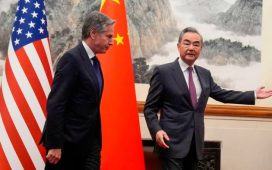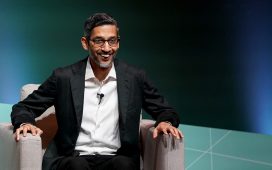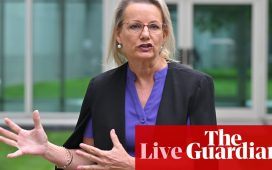Donald Trump’s vexed relationship with America’s central bank took an ugly turn this week, and for once, the president was not the aggressor.
A year of presidential complaints about rising interest rates has had lawyers dusting down the Federal Reserve Act of 1913. Mr Trump believes the ambiguously worded statute gives him the right to fire Jay Powell, the man he appointed as Fed chair at the end of 2017. So far the president has contented himself with trying to influence Mr Powell’s ways instead, branding the former Carlyle Group partner an “enemy” of America, and likening him to “a golfer who can’t putt”.
But on Tuesday, a former senior Fed official suggested the US central bank could instead try to prod voters into firing the president. Bill Dudley, who until last year served as vice-chair of the Fed’s rate-setting committee, wrote an opinion article advising his former colleagues not to try to ease the economic damage from Mr Trump’s trade war with China, and to “consider how their decisions will affect the political outcome in 2020”. Mr Trump’s re-election, he added, presented a threat to the US economy.
The Fed promptly pushed back, insisting that “political considerations play absolutely no role” in its decisions. Some economists saw Mr Dudley’s remarks as endangering a longstanding consensus that central bankers should be free to set monetary policy without political interference. Larry Summers, who served in the administrations of Bill Clinton and Barack Obama, said Mr Dudley’s argument was inconsistent with democratic principles, adding that it “might be the least responsible statement by a former financial official in decades”.
While Mr Powell is determined to keep politics out of the Fed, many on Wall Street believe Mr Trump is trying to make that impossible. “You have a president, a real estate guy, who is more attuned than anyone to interest rates, what moves them, what happens when they move,” says one senior financier. “He’s tried criticising Powell in public, that didn’t move him. OK, so now the China stuff. If the Fed sees that as a risk and decides it has to accommodate, Trump probably thinks that’s no bad thing.”
The idea that central banks should be run independently of politicians has gained currency since the 1980s. Then, Fed chair Paul Volcker faced down criticism of a period of high interest rates that is widely believed to have triggered a recession. The episode also convinced Americans that the Fed was serious about tackling inflation. The American approach has been copied in Britain, Europe and beyond.
Yet if choosing interest rates is a task best left to central bankers and their models, it is far from clear that the same goes for the monetary policy interventions conducted since the financial crisis, which have included bailing out financial institutions, agreeing huge currency exchanges with foreign central banks, and buying private sector financial instruments using newly minted cash.
As former Democratic congressman Barney Frank observed after a 2008 conversation with then Fed chair Ben Bernanke, “No one in a democracy, unelected, should have $800bn to spend as he sees fit.” Mr Dudley was an economist at Goldman Sachs for two decades before joining the New York Fed in 2009, just as such extraordinary actions became the norm.
But what is unusual about Mr Trump’s relationship with Mr Powell is not so much his desire for influence, as the uniquely abrasive manner in which he tries to exert it. As legal scholar Peter Conti-Brown showed in his book, The Power and Independence of the Federal Reserve, presidents and Fed chairs have sometimes got along famously.
Richard Nixon, for example, chose in Arthur Burns a man so attached to him that the former Fed chair recorded in his diary telling the president “that his friendship was one of the three that has counted most in my life”. Timothy Geithner, who was Treasury secretary under Mr Obama, tried to stay on the same page as Mr Bernanke by talking to the Fed chair so often that it was “basically a never-ending conference call”, he wrote in his crisis memoir Stress Test.
Mr Clinton had not yet taken office when, in conversation with his advisers, it dawned on him that “my re-election hinges on the Federal Reserve and a bunch of f***ing bond traders”, according to a 1994 book by Bob Woodward. Soon afterwards he summoned Fed chair Alan Greenspan to Arkansas, and paid him what the notoriously prolix economist may have considered the ultimate compliment.
“I could see why he was reputed to be a great retail politician,” Mr Greenspan later wrote in The Age of Turbulence. “He made me believe he really had been looking forward to seeing me.”








